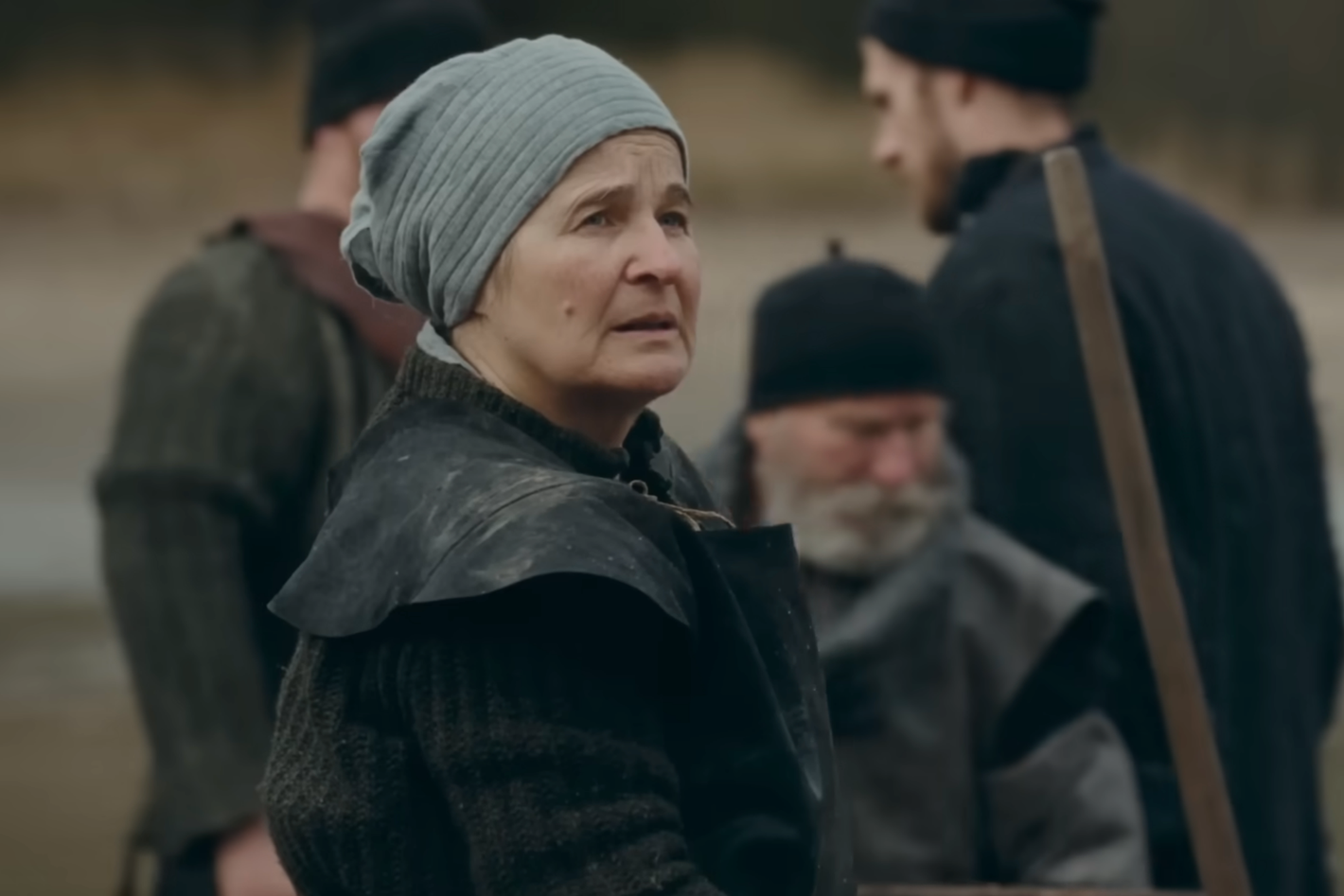I Never Want to See This Movie Again
The Devil’s Bath, a twisted horror drama from the directors of Goodnight Mommy, is both deeply captivating and deeply upsetting.

It’s the severed finger that does it. Not because it’s gross, but because it’s presented so matter-of-factly. When Agnes (Anja Plaschg), the protagonist of Veronika Franz and Severin Fiala’s The Devil’s Bath, gratefully receives that body part from her brother on her wedding day as a good-luck charm for a hoped-for pregnancy, the film enters a fully alien place. Strangely enough, before that, we’ve already been treated to a prologue featuring a distressed mother who throws her baby off a cliff and is punished by beheading and dismemberment. So we know this will be a cruel and strange movie. Franz and Fiala based their script on real events documented in the 17th and 18th centuries, and the bleak, muddy Austrian landscape seems to reflect the severe, unforgiving nature of this devout, deeply superstitious community.
But Agnes seems like a genuine innocent, as fragile as the dry leaves and delicate butterflies she likes to collect. That a severed finger would be a source of joy upends our initial impression of her and adds a subtle up-is-down quality to the film, which reflects the psychology of its characters. If you gave a supremely talented 18th-century villager from upper Austria a camera, they might make a movie like this.
The Devil’s Bath is a deeply fucked-up picture. I say that with admiration. Franz and Fiala first made waves with the 2015 psychological thriller Goodnight Mommy, and they’ve been mining a particular vein of surreal, simmering suspense since. They make sad, striking films that never entirely reveal what they’re about, which is a pretty great way to both grab and unsettle the viewer, especially when it comes to the horror genre. The movies are earworms that prompt the darker corners of our imaginations. But if their previous pictures felt like ornate, twisted little mousetraps, The Devil’s Bath feels less precise, more cosmic. It will be streaming on Shudder after a brief theatrical release, though to call it horror seems inexact. This is a more existential brand of terror and torture, which brings to mind Robert Eggers’s The Witch and Lars von Trier’s Breaking the Waves. Here, the whole universe is evil and suffocating, not just one corner of it.
When we first meet Agnes, she’s wide-eyed and full of affection for her new husband, awkward mama’s boy Wolf (David Scheig), even though he shows little interest in her. (Frankly, he seems more interested in a male pal to whom he drunkenly expresses his adoration on his wedding night.) A child is expected of them, but Wolf’s approach to carnal relations … well, let’s just say it’s not the sort of thing that would lead to anyone having kids. His stern, judgmental mother (Maria Hofstatter), the kind of person who would deny an extra piece of stale bread to a pregnant woman, regards Agnes with suspicion as well; she seems to think this girl is too flighty and soft for her boy.
Franz and Fiala are masters of tone. Here, they weave an elegantly grim mood, framing this gray, overgrown, and swampy terrain as if it were a kind of spiritual limbo. When one villager commits suicide and is denied a burial, we see their body discarded in a field full of trash and bones; it could be an actual field or a representation of the netherworld such souls are forced to occupy in this devout community’s conception of the afterlife.
But the heart of the film belongs to Plaschg, who makes Agnes’s growing melancholy inordinately compelling. We can’t quite reach this young woman — she belongs to a world unlike ours in so many ways, and she so rarely speaks — but the gathering anxiety she feels in the face of all this judgment and expectation, with sin supposedly lurking around every corner, becomes quite palpable. (The actress, better known as a musician who performs under the name Soap&Skin, also composed the film’s score.) That’s the dark magic of this movie. Agnes remains a captivating enigma, but her pain is so vivid it’s almost unbearable. The result is one of those films you can’t stop thinking about — but might never want to see again.
